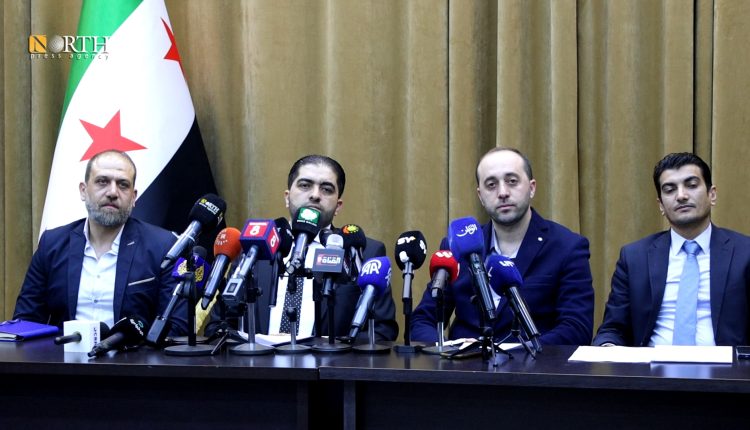Syrian Ministry of Health Issues Urgent Appeal Over Cancer Drug Shortages
By Kardo Roj
DAMASCUS, Syria (North Press) – The Syrian Ministry of Health issued an urgent humanitarian appeal on Wednesday, warning that severe shortages of cancer drugs are endangering thousands of patients across the country. Officials have called for immediate international assistance to address what they describe as a growing health crisis.
At a press conference in Damascus attended by North Press, Zuhair Qarot, Director of Planning and International Cooperation at the Ministry of Health, described the situation as “catastrophic,” emphasizing the critical impact on cancer patients who rely on regular medication.
“We are making this appeal on behalf of the patients waiting for their next dose, on behalf of families who cannot afford treatment, and on behalf of doctors working without the necessary tools,” Qarot stated. “This shortage is not just a medical issue—it is a humanitarian crisis.”
Syria has faced chronic shortages of essential medicines due to years of conflict, economic sanctions, and the collapse of the healthcare infrastructure. According to the National Advisory Committee for Blood and Oncology, only 20% of the required cancer medications are currently available, while supplies for certain types of treatment have completely run out.
Jamil Al-Dabl, head of the committee, warned that the situation could lead to “a massive health disaster affecting both children and adults alike.” He urged media outlets to highlight the crisis and push for international action.
“We are not asking for the impossible,” Qarot added. “We are asking for what is necessary and urgent.”
Syria’s healthcare system, once one of the most advanced in the region, has suffered under the weight of conflict, displacement, and economic instability. The depreciation of the Syrian pound, international sanctions, and supply chain disruptions have made it increasingly difficult to import life-saving medications.
While the government in Damascus has appealed to international organizations, humanitarian assistance remains limited due to geopolitical complexities. Organizations such as the World Health Organization (WHO) and UNICEF have provided intermittent aid, but Syrian officials stress that it is insufficient to meet growing demand.
The crisis also impacts regions outside government control, including areas governed by the Autonomous Administration of North and East Syria (AANES). Healthcare providers in these regions have similarly struggled to secure medical supplies, relying on international aid and local efforts to fill the gaps.
In his remarks, Qarot directly addressed global humanitarian agencies, including the UN, WHO, the European Union, and international non-governmental organizations, urging them to act swiftly.
“Healthcare should be a right, not a privilege,” he said, stressing the need for a coordinated response to prevent further suffering.
As the crisis deepens, medical professionals warn that without immediate intervention, many cancer patients in Syria could face dire consequences. The Ministry of Health has pledged to continue its efforts to secure medication but acknowledges that without external assistance, the situation will remain critical.
With no immediate resolution in sight, the fate of thousands of patients now hinges on international cooperation and the ability of humanitarian organizations to navigate Syria’s complex political landscape to deliver life-saving treatment.

